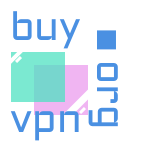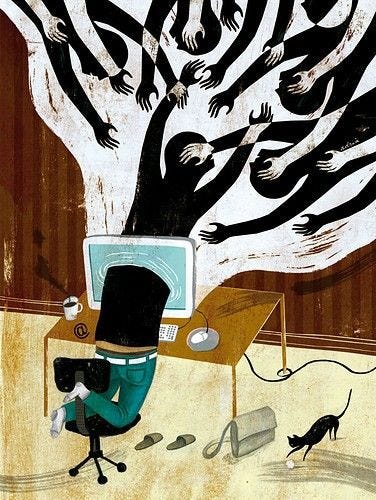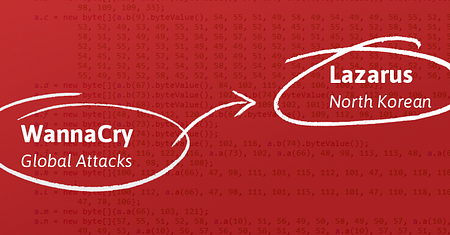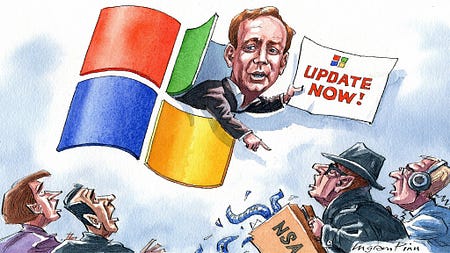
For a $5.99 monthly price point, this VPN subscription with MYIP.io will give a lot of other VPNs, on the market, a run for their money, considering it will get you a dedicated IP in one of the best locations, as well as a pretty robust encryption, among other features.
Designed as a self-managedVPNnetwork platform, MyIP.io delivers fast, secure and reliable VPN services and comes with eye-watering offerings on three main layers of demographic:The Personal VPN — starting at $2.49/mo.
The Dedicated VPN — starting at $5.99/mo.
The Business VPN — starting at $29.99/mo.
In other words, these three channeled VPN products make for a wonderful choice both in terms of personal or corporate use. You will also enjoy a bunch of enterprise level perks and benefits such as the robust encryption or the multitude of simultaneous connections and users that can reach up to 50 users per account for the business VPN, since the platform itself was designed with the professional focus in mind.
It is why My IP.io’s sparked a new growth on the 2nd and 3rd quarter this year, being a trusted brand by thousands of happy members and business owners. Slowly but surely MyIP.io is becoming a smart community, the platform of choice for many agile businesses and you too can join.
We engineered MyIP.io as a global platform and committed to developing applications and services that preserved an open and secure Internet experience while respecting our users privacy.
Regardless if you are going to go with our service or another, not wanting to sound like boasters, we skip presentation and get to the technicalities of where to start and what to look for when in need of a VPN service.
First things first, let’s shed some light on what the internet is really made of from this blogger’s wisdom:

“The internet is simply a series of computers connected through wires. The computers are owned by everyone — you, me, companies, and governments. When I access a website, my computer routes a signal through my Internet Service Provider’s (ISP) tubes to the website’s computer. Naturally, the middleman keeps a log of all the traffic that goes through their property. And naturally, the middleman is always looking for new opportunities to grow richer. In a capitalistic economy, can you fault the middleman? The question is: why did we not think this was inevitable?” (you can read the full article here)
Skipping the middleman is exactly the kind of luxury that a VPN connection will afford you.
One little amendment though, you should avoid free services as a these providers are sure to make their profits elsewhere. The phrase “when the product is free, you are the product” is an honest representation of what really happens when you enroll to a free service.
“There is no such thing as a free lunch” another wise phrase made popular by Milton Friedman back ’75, remains of great economic relevance today in describing things like “opportunity costs”. However enticing, free VPNs seldom defeat the purpose of what a Virtual private network should be.
- IT AIN’T A FREE LUNCH
A VPN service implies having servers in various countries. The maintenance or renting costs can amount a few figures, depending on volume.
- SELLING USERS BANDWIDTH
using their users as servers by converting them into a botnet, some VPN providers have been revealed, while others admit in their lawyer-eese terms of service, they can sell your bandwidth to other companies.
As a general rule, mundane but incredibly important, reading the company’s Terms of Service and the Privacy Policy, before buying a vpn service is a thing you should really consider. Ideally, these documents are in plain English and not lawyer-eese.
Long story short, we recap 10 reasons you should look for when looking for a VPN connections (you can read article in full here)
№1: PRICE

When it comes to free versus paid, there is no debate really. Going with a free VPN service could defeat the very purpose you’re using such a service.
In other words, by searching a bargain you can be faced with two main issues:
- Slower computer and internet connection: as you’re sharing your bandwidth and processor with others;
- Higher Security Risks: assuming responsibility for what other users do online, that can be tracked down back to your IP.
- Data Collection: In depth analytics of your use data can be sold to third parties companies. Choosing a VPN provider, like My IP.io, that goes on a “no log kept” policies is the best approach to the matter.
- Ads: modifying the web code to show ads is a common practice for “free” VPN services.
- A good VPNwill have its own servers and encryption protocols designed for it, reducing possible security failures to a minimum. Free VPN servicesare often an open door to malware and can be easily used by scammers.
In the FREE vs. PAID matter, its is important to understand that most legit businesses will offer 7 days of free trial, but a free connection on a indefinite period of time is sure to get its profit elsewhere; in ways that can harm your security and defeat the whole purpose of having a VPN in the first place.
We suggest you do yourself a favor and invest a good 5 bucks for a reliable VPNlike the dedicated VPN you can get from My IP.io or from another reliable provider. Prices are raging from $7 to $12 depending on the subscription time commitment, so going with My IP.io is a no brainer considering the unrivaled cost to features ratio.
№2: TEST SERVICE TIME
To test the service most providers allow 7 days money back guarantee and of course My IP is no exception when it comes to letting users try the service out.
№3: COMPATIBILITY
Compatibility with Windows, Mac, Android and iOS devices are a given for most VPN products out there. Stepping up a notch come browser extensions and compatibility with Kindle/eReader, TV or gaming systems.
All My IP.io products are compatible with all major OSes (Windows, Mac, iOS, Android) plus Routers and Linux.
№4: ENCRYPTION

They say that a VPN is only as good as its encryption capabilities, but encryption in itself is not the simplest of topics. The terminology used to determine how secure a VPN connection is, can get very confusing, very quickly.
Before getting familiar with security standards and encryption protocols, let’s just focus on this pretty impressive feature for a VPN to have, the Open VPN Cipher: AES (Advanced Encryption Standard) with 256-bit keys — also known as the AES-256. This security standard is basically the same encryption standard adopted by the U.S. government and used by security experts worldwide to protect classified information.
Right below we have AES- 128, the Open VPN Cipher used by My IP.io, which remains secure as far as the AES in general is regarded. The mathematics of the 128 bit AES goes to show that a billion billion years are required and a supercomputer for a brute force attack to crack it.
Pretty impressive, huh?
Of course AES is not perfect, but hey! math doesn’t lie.
My IP.io comes bundled with a variety of VPN encryption protocols, supporting all the latest security protocols including SSTP, PPTP, IPSec, L2TP, SSTP and 128bit –AES, OpenVPN cipher.
When you use the MY IP.io app, you can easily switch between protocols, although it’s recommended that you stick with defaults.
№5: LOCATIONS
Generally used to epitomize how the right or wrong location can determine the outcome of a property sale or a new business venture, the phrase “location, location, location” acquires new meaning when referenced in Tech. Just as sometimes access to venture capitalists is somewhat more difficult, if you’re not in Silicon Valley, Alley or Prairie, often digital access requires geographical variables to wire.
Ok, but what’s the right location for you, right?
Long story short, if you’re in east Asia try to connect to Singapore or US; or if you’re in the Middle East, try connecting in Europe. The first thing to consider is the nearest location to yours.
№6: LOGGING POLICIES
A common misconception goes to say that US VPN services are legally required to log activity on their network. While required to cooperate with US law enforcement, as opposed to other countries, the location of servers is often more important.
Not compliant with DMCA are a lot of server locations outside the US.
MyIP.io is a self-managed VPN network platform, delivering fast, secure and reliable VPN service ,with servers located in France, Romania and Canada, hence is not subjected to Ministry of Industry and Information Technology or DMCA compliance.
№7: SUPPORT
Most VPN providers offer support centers and entire achieves of How Tos or FAQs, but let’s face it, having a reliable support features means more than that. You want to be able to talk through live chat or with a live representative at times.
A VPN with My IP.io will give you access to one of the most diverse support system a VPN provider could give you. 24/7 Support through live chat or by phone, a comprehensive video gallery of how tos, ticket or email support and even remote desktop support, where the case.
№8: DEDICATED IPs
Very useful when playing online games or logging into services such as banks, Paypal, e-mail providers, etc., a static IP is an underrated asset, than not many VPN providers, big names (surprisingly enough), offer.
The ones that do offer a dedicated IP will charge the service as add on and will not always be that transparent about prices.
At My IP.io you can get your own static IP address for as little as $5/ month.
№9: BUSINESS PLANS

VPNs are often the communication platform of choice for virtually any business that takes itself seriously, as they enable site-to-site connection with a service provider managing the end-to-end network. A VPN enables a computer that is located outside the corporate network to connect to that network as if it were inside the building, allowing access to internal resources such as file shares, applications, and printers. Beyond connectivity a VPNimplicitly means that a secure bridge has been created between any given device using that connection and your business server, which can be on your premises or in the cloud.
With our business VPN suite comes strengthened security, as the service is not limited to encryption. We also support all the latest security protocols including SSTP, PPTP, IPSec, L2TP, SSTP, and OpenVPN.
The level of sophistication depends on the number of accounts and/ devices: our business VPN solution can consolidate all your team’s accounts into one master account, a convenient scenario in terms of having control, management and payment. We can allocate a whole subnet, so that you won’t be constrained as to having to whitelist multiple IPs or we can engineer a custom solution for your, in which we install a LDAP server. You will be given a password manager and VPN server and you’re free to run your own network to your preference. The business VPN solution allows multiple people to be logged in and proxying through a single IP address at one time, simultaneous connection for all on multiple devices, editing and monitor access, from a single, easy-to-use central admin area.
My IP.io Business VPN Benefits:
Multiple VPN Accounts
Dedicated Suppot
One Master Account
Discounts
To get started in full big business connectivity way, just connect with My IP.io and we’ll assign an account manager that will guide you through the whole installation process and assist you each step of the way for the whole period of your subscription. Once the number of accounts and connections are defined, we can set things in motion for you and your team.












